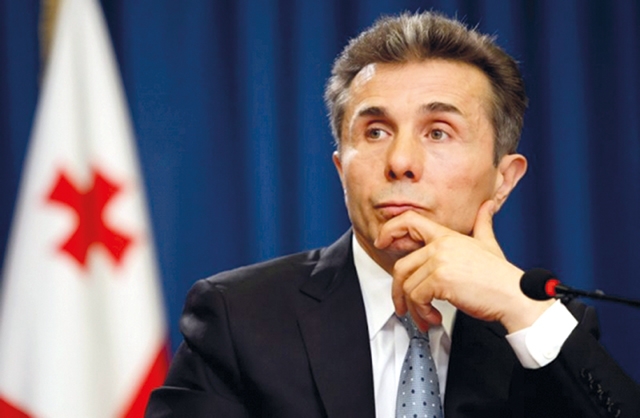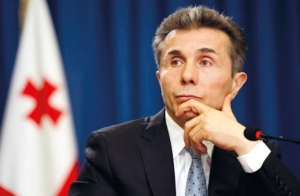Statement by Bidzina Ivanishvili, Chairman of the Georgian Dream-Democratic Georgia Political Union
Today, as our country is going through another important stage on the path of democratic development, as chairman of the ruling political party, I consider it necessary to respond to the processes that have unfolded in Parliament in recent days.
I am disappointed that ultimately, our initiative to hold the 2020 parliamentary elections on a proportional basis with zero electoral thresholds failed to come to fruition. Unfortunately, the Parliament of Georgia rejected this initiative due to opposition from one part of the deputies of the Georgian Dream, most of who are majoritarians.
The following question can be heard among the public: How did this so-called “majoritarian revolt” develop so suddenly in the ruling team, given that the several-month-long consultation process concluded successfully and the matter was put to the vote?
In order to fully answer this question and to avoid speculation, I feel obligated to remind the public of several indisputable facts.
More specifically:
The political team of the Georgian Dream made the decision to switch to a proportional electoral system, on its own initiative, as early as in 2017, within the framework of the constitutional reform that took place against the backdrop of a campaign-like, aggressive boycott organized by the opposition spectrum, a part of the nongovernmental sector, and party media. For this reason, the corresponding changes were implemented in the legislation at the expense of the votes of the ruling party’s parliamentary majority. At the time, the National Movement boycotted this process – a process that gave us a truly European Constitution, rather than one that was tailored to one political leader and one political force. This received an unequivocally positive assessment from the entire international community.
It is no secret that the idea of switching to a proportional electoral system never enjoyed particular popularity among majoritarian deputies, and a large part of them did not greet this reform with proper enthusiasm at that time either. For this reason, an internal party consensus concerning our desire to abolish the mixed electoral system from 2020 onwards could not be reached. Correspondingly, a compromise decision was made regarding transition to a proportional electoral system in 2024.
Imagine this – had the parliamentary opposition demonstrated a minimum of political maturity and an approach that prioritizes the interests of the state, had they not been committed to the narrow party agenda of damaging the authorities at any cost, and had they supported the constitutional reform, the discussion and turmoil of today would not have taken place at all. We would have persuaded our majoritarian deputies in the futility of the idea of postponing the electoral reform, and we would have unequivocally inscribed the decision to switch to the proportional electoral system from 2020 in the Constitution.
This important circumstance should not be overlooked under any conditions, if we want to see the big picture objectively, and avoid ignoring the common context and assessing the situation in a fragmented manner, especially against an emotional background.
Despite this, the events that took place during the summer of this year, the justified protest by a part of the public, was followed by a completely reasonable reaction from the ruling team – the chairman of Parliament assumed political responsibility and resigned, and the Georgian Dream addressed the public with an important initiative – to hold the 2020 parliamentary elections using the proportional system, with no electoral threshold.
I will not hide that I, personally, was the author of this initiative and, despite the hesitation of some majoritarian deputies, the team largely supported this idea and the majoritarian deputies, with several exceptions, also submitted to party discipline.
Although the Georgian Dream set the precedent in 2012 and, precisely under conditions of a mixed electoral system, defeated the political regime under whose rule the boundaries between the state and the party were erased, still, small and weakly organized parties felt that a proportional electoral system would have provided them with greater chances of success. This is precisely why we came up with this initiative. And by proposing an electoral threshold of zero, we tried to further increase the opportunities of small parties.
I am still convinced today that the public gave an appropriate assessment to our decision to refuse, in good faith and without any preconditions, the significant starting advantage that the political team of the Georgian Dream and its majoritarian candidates possess over the candidates of all opposition parties without exception.
The most important result that should have followed our proposal was the elevation of the relations between our country, the authorities and the opposition spectrum, the authorities and various public groups, to a qualitatively new level of political culture, while the political process itself should have facilitated the emergence of a new stage of democratic development.
We hoped that our bold political act would have been perceived positively by other actors as well, and that we would have received a constructive reaction in response.
Unfortunately, this is not what happened.
Given the statements or actions of the National Movement and its satellites, the public clearly saw that the Georgian Dream’s attempt to elevate the political culture of the country to a qualitatively new level turned out to have been merely a unilateral desire and was perceived as an attempt to snatch the proportional elections from the authorities.
Endless destruction, attempts to disrupt the country and the church, aggressive rhetoric, cynicism, derision, and personal insults – this is how the irresponsible opposition and its satellite organizations responded to our initiative. The developments reached a point whereby aggressive groups under direct or indirect control of the opposition burst into halls in the regions in order to interfere with our deputies and to publicly insult them, with the purpose of derailing the public discussions of the constitutional amendments.
Dissatisfaction within the ruling team due to these events has not begun today or yesterday. Even though we chose not to make the heated internal party discussions and disagreements that took place public knowledge, other leaders and I expended enormous efforts to keep the process from ending in deadlock.
Despite this, the opposition did everything to break the fragile consensus that was reached within our team during the summer, and when deputies suffered grave personal insults directly in the chamber of Parliament, evidently a large part of them ran out of patience. Unfortunately, I was also unable to return them to a constructive state.
There is no shortage of skeptics in our country but no one can escape the facts and it is also a fact that real, rather than superficial democracy exists within our team, which precludes attempts to force people to change their principled positions. We have consigned the Soviet, as well as National Movement’s characteristic, monolithic, administrative-imperative style of governance, whereby no one could go against the sole leader, to the past. Differences of opinion and discussions are natural processes in our team and our public has seen numerous examples thereof.
Lastly – there are no perfect electoral systems. It is well-known that discussions regarding the pros and cons of any system are constantly ongoing in the civilized world. It is democracy, rather than the electoral system, that is the panacea – a political system with effective institutions, which should ensure the main thing – the fact that the people are the source of power, and their will must be reflected in the results of the elections without any hindrances.
As the leader of the ruling political force, I once again reaffirm that I was and still am in support of transitioning to a proportional system of elections in 2020 and I sincerely regret that this failed to take place. I, along with my team and the authorities, will serve as guarantor that the process of the democratic development of Georgia will become irreversible. Free and fair elections in 2020 will be a precondition and prominent example thereof.
By Ana Dumbadze












